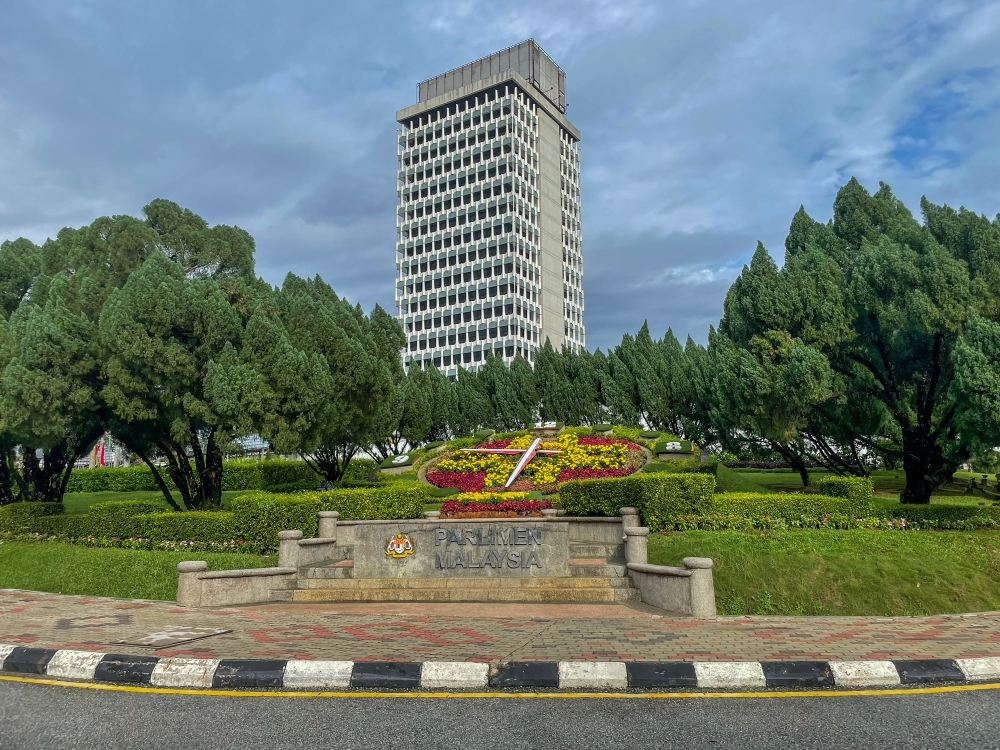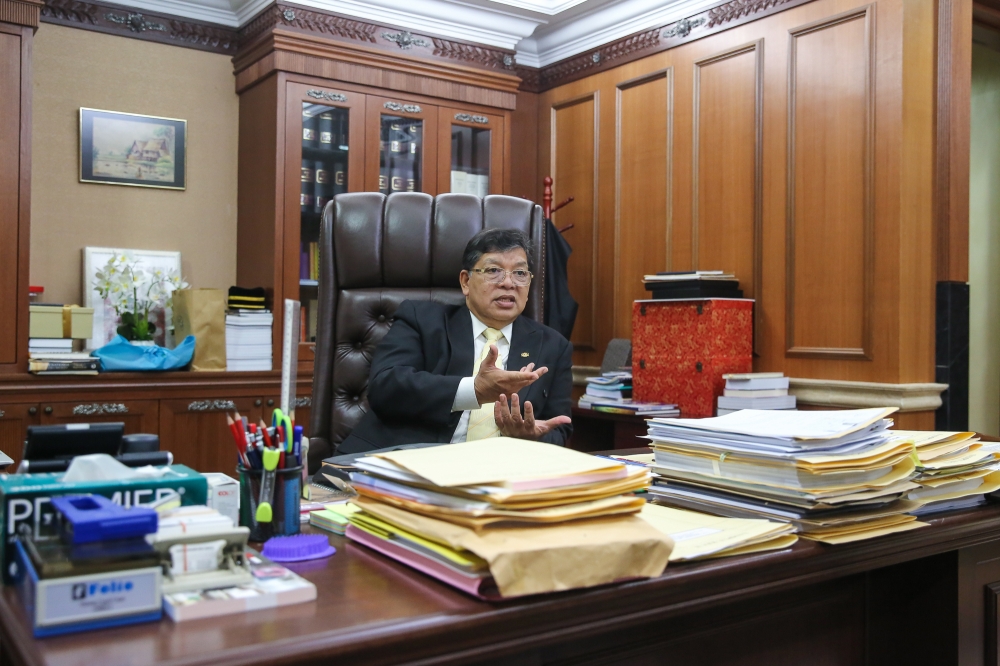KUALA LUMPUR, July 3 — When Tan Sri Johari Abdul took office as the Dewan Rakyat Speaker, he made it a point to work for the rakyat and not remain in silo.
For that, he has taken steps to make it possible for the public to visit the federal legislature building to observe affairs conducted within.
Recent visitors would have noticed long queues outside of the Parliament compound, with visitors lining up to register themselves before being granted entry.
“I don’t want to be in silo, we are part of the society and the society should know what is happening in the Dewan Rakyat.
“That’s why we have the Parliament open day, to allow the public to come and visit us. When the session is on, I allow the public to come in, the public gallery is full now,” he told Malay Mail in an interview.
On one of those days, visitors also witnessed the first time that the Auditor-General’s Report was debated in Parliament. On another, they might have seen the tabling of the Suhakam (Human Rights Commission of Malaysia) Annual Report, Johari said.
Even though Opposition MPs had attempted to block the debate from taking place, the Speaker pushed it through.
“So far, I don’t see the Opposition moving towards blocking a Bill, except I was surprised that the 2021 Auditor-General Report debate was blocked or they tried to block it. That one I was taken aback, because in fact, as I said in the Dewan Rakyat, it has never been done before since Parliament’s day one until today, never.
“But I took the opportunity, I had a discussion with my staff here and the minister. I said, why don’t we do this? Of course, we have the PAC, but how many people have the access to the PAC report? Sometimes PAC reports, nobody talks about it; because nobody talks about it, then (it’s forgotten),” he said.
Johari explained that when a report is placed on the table, the procedure is for one MP to stand up to propose a motion for it to be debated, which he said had not been done previously.
“So of course, we initiated it, but surprisingly they were against it, I don’t know why.
“They were talking about procedure, (yes) procedure is one thing, but we are not going against the law, even if it’s going against the procedure. At the end of the day there is a clause in the Standing Order that says, ‘the decision is made by the Speaker’, so why not I allowed it?
“It’s a bit strange that they walked out, very very strange,” he said.
On June 6, Opposition MPs walked out of Parliament when the Speaker agreed for the 2021 Auditor-General’s Report to be debated. Aside from refusing to participate, they remained absent throughout.
“We have enough Bills, except I want to put the reports up first, so that we have enough time because the two reports are important, in fact during his (PAS Kota Baru MP Datuk Seri Takiyuddin Hassan) time when he was the minister, it was laid on his table and there were calls to debate but he said no, he didn’t allow it — this was the Suhakam annual report, so we were surprised.
“You see, this agency has done a good job, they have taken so much time, look at the profile of the board members, they are high profile (people), they have done a good job, (if) we don’t appreciate even by debating the report, it doesn’t look good.
“And furthermore, there are so many sectors of society that should understand what is going on, so I think the police, and every part of the society should listen to this and what is happening in the society, you have the ability to improve things, that’s what I’m saying,” he said.

Restoring Parliament’s independence
Next in the pipeline is the Parliament Services Act 1963 (PSA), Johari said.
The law, which was repealed in 1992, will be brought back hopefully by the end of the year, he said.
Johari said this was a key step to improving Parliament’s independence as it would allow it to decide on its own finances.
“When we propose a budget, certainly the money comes from Ministry of Finance (MoF), the way we spend the money has to adhere to the treasuries instruction which are very strict instructions.
“But nevertheless when the money is allocated to Parliament, and when I want to buy certain things, I do not want to go back to MoF asking for another permission (to use) my money, that’s the problem,” he said.
This made it look as though Parliament was answerable to a ministry, when it should not be the case, he said.
Johari said the same restrictions also extended to hiring and firing staff for Parliament, which he said was decided currently by the Public Service Department (JPA).
“(Parliament) provides services to the ministry and the government, so I want to hire the best.
“But no. Normally what I can do, at the moment, you got to write to JPA and then JPA will send you anybody they want to send and you can’t send them back. I don’t have the independence on that score — hiring and firing.
“Whether they perform or don’t perform, I cannot fire them; I’ve got to send back to JPA and the process is very tedious and that somehow or rather in a way give hiccups in doing things,” he said.
First enacted in 1963, the PSA gave the Parliament the right to conduct its own administration, staffing and controlling its finances.
The law was repealed in 1992 during Tun Dr Mahathir Mohamad’s first stint as prime minister, which led parliamentary affairs to fall under the purview of the Prime Minister’s Department.
The previous administration agreed to revive the law, but before the Bill could be tabled in Dewan Rakyat last year, the Parliament was dissolved to pave the way for the 15th general election.
Apart from reviving the PSA, Johari is also hopeful that with the 10 new special select committees created, checks and balances could occur more readily.
“Compared to the last session or the last two sessions whereby the special select committee has to take orders from the ministers or their approval (before they look into certain matters), that’s no more now.
“They are almost independent now, except when they want to call anyone to appear before them, they have to get my clearance because I don’t want redundancy if the Parliament Public Accounts Committee (PAC) has called and the select committee wants to call again,” he said.
As for Special Chambers, Johari said he has given the Opposition MPs reins to decide proceedings.

Separation of powers
Parliament is one of the places where separation of powers in the government must be exercised, Johari said.
“I feel good, I feel honoured that the prime minister has given me almost complete control of Parliament.
“And the prime minister, he never calls me on issues relating to running of Parliament. Of course, there are other issues that he would come and talk to me, or any suggestions, but instructing what to do and how to run the Parliament — he never does that.
“He (prime minister) really walks the talk, when he spoke about the separation of power should be practised and that is exactly what is happening at the moment, I think that will continue as long as he is the prime minister,” Johari said.





















